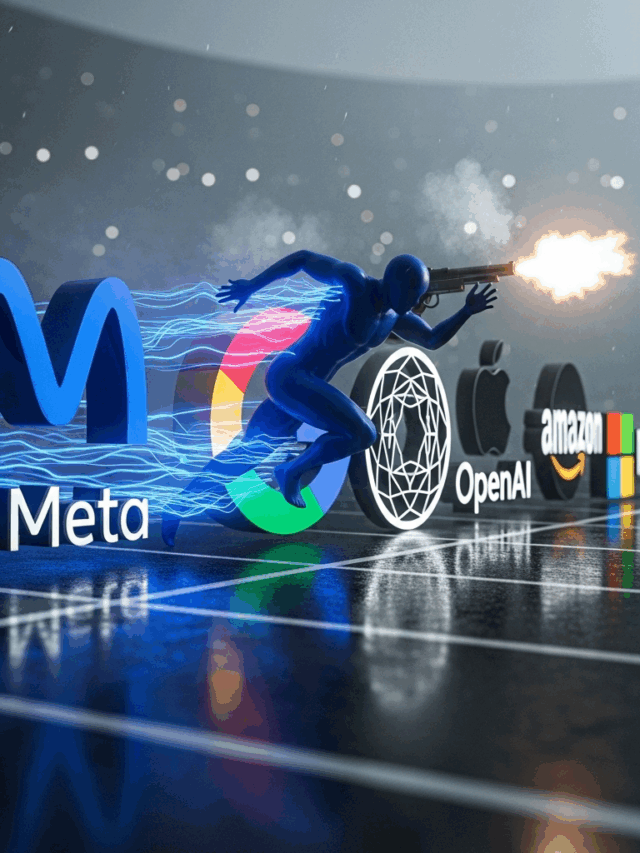If you are a freelancer or a small business owner, you know how important it is to have a digital marketing strategy. A digital marketing strategy is a plan that outlines how you use online channels to reach your target audience, promote your brand, and generate leads and sales. A digital marketing strategy can help you stand out from the competition, increase your visibility, and grow your business.
But how do you create a digital marketing strategy that works for you? What are the key components of a digital marketing strategy? How do you measure and optimize your results? And how do you get the digital marketing support you need to succeed?
In this article, we will answer these questions and more. We will provide you with a comprehensive guide to digital marketing strategy, covering the following topics:
- Understanding digital marketing and its benefits
- The freelance digital marketing landscape and its opportunities and challenges
- The key components of a digital marketing strategy, including SEO, content marketing, social media marketing, PPC, affiliate marketing, and web design
- The role of SEO in digital marketing and how to improve your search visibility and drive more relevant traffic
- The power of content marketing and how to attract more customers with valuable and engaging content
- How to leverage social media for digital marketing and use different platforms to reach your audience
- How to use paid marketing strategies such as PPC and affiliate marketing to boost your conversions and revenue
- How to create an effective web design that makes a good first impression and enhances your user experience
- How to generate leads for your business and nurture them into loyal customers
- How to get the digital marketing support you need to master the game and achieve your goals

By the end of this article, you will have a clear understanding of what a digital marketing strategy is, why it is important, and how to create one for your freelance or small business. You will also learn some tips and tricks to optimize your digital marketing efforts and get the best results possible.
So, let’s get started!
Understanding Digital Marketing
Before we dive into the details of creating a digital marketing strategy, let’s first understand what digital marketing is and why it is important.
Digital marketing is the use of online channels such as websites, blogs, social media, email, video, podcasts, etc. to market your products or services to your target audience. Digital marketing can help you achieve various objectives such as:
- Building brand awareness and recognition
- Establishing trust and credibility
- Educating and informing your audience
- Generating leads and sales
- Increasing customer loyalty and retention
- Enhancing customer satisfaction and feedback
Digital marketing has many benefits over traditional marketing methods such as:
- It is cost-effective and scalable. You can reach a large number of people with a relatively low budget and adjust your spending according to your performance.
- It is measurable and trackable. You can monitor and analyze your digital marketing campaigns using various tools and metrics such as traffic, conversions, bounce rate, click-through rate, etc.
- It is flexible and adaptable. You can test different strategies and tactics and optimize them based on your results. You can also customize your messages and offers according to your audience’s preferences, behavior, location, etc.
- It is interactive and engaging. You can communicate with your audience in real-time and encourage them to take action. You can also collect feedback and reviews from your customers and improve your products or services accordingly.
However, digital marketing also comes with some challenges such as:
- It is competitive and crowded. You have to compete with millions of other websites, blogs, social media accounts, etc. for the attention of your audience. You have to create unique and valuable content that stands out from the rest.
- It is dynamic and evolving. You have to keep up with the latest trends, technologies, algorithms, etc. that affect your digital marketing performance. You have to constantly update your skills and knowledge and adapt to the changing environment.
- It is complex and multifaceted. You have to manage various aspects of your digital marketing strategy such as SEO, content marketing, social media marketing, PPC, affiliate marketing, web design, etc. You have to coordinate them effectively and ensure they are aligned with your goals.
The Freelance Digital Marketing Landscape
If you are a freelancer or a small business owner who wants to leverage digital marketing for your growth, you are not alone. According to a report by Upwork, the freelance workforce grew by 46% in this year compared to last year. The report also revealed that 59% of freelancers increased their usage of online platforms in the current year.
Freelance digital marketing is a booming industry that offers many opportunities for freelancers who have the skills and expertise to help businesses with their online marketing needs. Freelance digital marketers can offer various services such as:
- SEO (Search Engine Optimization): This involves optimizing your website and content for search engines such as Google, Bing, etc. to rank higher and attract more organic traffic.
- Content Marketing: This involves creating and distributing valuable and relevant content such as blogs, articles, ebooks, infographics, videos, podcasts, etc. to educate, inform, entertain, and persuade your audience.
- Social Media Marketing: This involves using social media platforms such as Facebook, formerly Twitter (Now X.com), Instagram, LinkedIn, Threads etc. to connect with your audience, build relationships, increase brand awareness, and drive traffic to your website.
- PPC (Pay-Per-Click): This involves using paid advertising platforms such as Google Ads, Facebook Ads, etc. to display your ads to your target audience based on their keywords, interests, demographics, etc. and pay only when they click on your ads.
- Affiliate Marketing: This involves promoting other people’s or companies’ products or services on your website or social media and earning a commission for each sale or action that you generate.
- Web Design: This involves creating and maintaining a website that is attractive, functional, user-friendly, and responsive to different devices and browsers.
Freelance digital marketing can help you achieve various benefits such as:
- You can work from anywhere and anytime. You can choose your own schedule, location, and clients according to your preferences and availability.
- You can earn more income and have more financial freedom. You can set your own rates and negotiate with your clients according to the value you provide. You can also diversify your income streams by offering different services or products.
- You can learn new skills and grow professionally. You can constantly update your knowledge and skills by taking online courses, reading blogs, watching videos, etc. You can also network with other freelancers and experts in your field and learn from them.
However, freelance digital marketing also comes with some challenges such as:
- You have to find and retain clients. You have to market yourself and showcase your portfolio and testimonials to attract potential clients. You also have to deliver quality work and maintain good communication with your clients to retain them and get referrals.
- You have to manage your time and projects. You have to plan your work and prioritize your tasks according to deadlines and expectations. You also have to balance your work and personal life and avoid burnout.
- You have to deal with uncertainty and risk. You have to cope with the fluctuations in demand and income that come with freelancing. You also have to handle the legal, financial, and tax issues that come with running your own business.
Key Components of a Digital Marketing Strategy
Now that you have a basic understanding of what digital marketing is and what it entails for freelancers, let’s look at the key components of a digital marketing strategy.
A digital marketing strategy is a plan that outlines how you use online channels to achieve your specific goals. A digital marketing strategy should include the following elements:
- Goals: These are the specific, measurable, achievable, relevant, and time-bound (SMART) objectives that you want to accomplish with your digital marketing efforts. For example, you may want to increase your website traffic by 50% in 6 months or generate 100 leads per month.
- Audience: These are the people who are interested in or need your products or services. You should define your target audience based on their demographics (age, gender, location, etc.), psychographics (interests, values, attitudes, etc.), behavior (needs, pain points, challenges, etc.), and goals (desires, aspirations, motivations, etc.). For example, you may target young professionals who are looking for freelance digital marketing services to grow their online presence.
- Channels: These are the online platforms that you use to reach your audience and deliver your message. You should choose the channels that are most relevant and effective for your goals and audience. For example, you may use a website as your main channel to showcase your portfolio and services. You may also use a blog to provide valuable content and SEO tips. You may also use social media platforms such as LinkedIn or Formerly Twitter (Now X.com) to connect with potential clients and influencers.
- Content: These are the pieces of information that you create and distribute on your channels to educate, inform, entertain, and persuade your audience and encourage them to take action such as visiting your website, signing up for your newsletter, requesting a quote, or buying your product or service. You should create content that is valuable, relevant, and engaging for your audience and aligned with your goals. For example, you may create a blog post that explains the benefits of SEO for freelancers and how to optimize your website for search engines. You may also create a video testimonial that showcases the results you achieved for one of your clients.
- Tactics: These are the specific actions and techniques that you use to implement your content and channel strategies. You should use tactics that are best suited for your content type, channel, audience, and goal. For example, you may use keywords, meta tags, headings, links, etc. to optimize your blog post for SEO. You may also use hashtags, mentions, tags, etc. to increase your social media reach and engagement.
- Metrics: These are the indicators that you use to measure and evaluate your digital marketing performance. You should use metrics that are relevant and meaningful for your goals and channels. For example, you may use traffic, bounce rate, dwell time, etc. to measure your website performance. You may also use conversions, leads, sales, etc. to measure your business performance.
- Tools: These are the online resources and applications that you use to execute, monitor, and analyze your digital marketing campaigns. You should use tools that are reliable, user-friendly, and affordable for your needs. For example, you may use Google Analytics, Google Search Console, etc. to track and improve your website performance. You may also use Mailchimp, HubSpot, etc. to manage your email marketing campaigns.
These are the key components of a digital marketing strategy that you should consider when creating one for your freelance or small business. In the following sections, we will explore each component in more detail and provide you with some tips and examples to help you master the game of digital marketing.
The Role of SEO in Digital Marketing
One of the most important components of a digital marketing strategy is SEO (Search Engine Optimization). SEO is the process of improving your website and content for search engines such as Google, Bing, etc. to rank higher and attract more organic traffic.
SEO is crucial for digital marketing because:
- It helps you reach your target audience who are searching for your products or services online.
- It helps you increase your visibility and credibility among your potential customers and competitors.
- It helps you drive more relevant traffic to your website that is more likely to convert into leads or sales.
- It helps you reduce your marketing costs by generating free and long-lasting traffic.
However, SEO is also challenging because:
- It is competitive and dynamic. You have to compete with millions of other websites for the top positions on the search results pages. You also have to keep up with the frequent changes in the search engine algorithms and user behavior.
- It is complex and technical. You have to optimize various aspects of your website such as structure, speed, security, mobile-friendliness, etc. You also have to optimize various aspects of your content such as keywords, titles, headings, meta tags, links, images, etc.
- It is time-consuming and ongoing. You have to conduct keyword research, competitor analysis, content creation, link building, etc. on a regular basis. You also have to monitor and analyze your SEO performance and make adjustments accordingly.
To succeed in SEO, you need to follow some best practices such as:
- Conduct a thorough keyword research to find out what words and phrases your target audience are using to search for your products or services online. Use tools such as Google Keyword Planner or Ubersuggest to find relevant and popular keywords for your niche.
- Optimize your website structure and navigation to make it easy for both users and search engines to find and access your pages. Use tools such as Google PageSpeed Insights or GTmetrix to check and improve your website speed and performance.
- Optimize your content for both users and search engines by using keywords naturally and strategically in your titles, headings, meta tags, links, images, etc. Use tools such as Yoast SEO or Rank Math to check and improve your content SEO.
- Create valuable and engaging content that provides useful information, solves problems, answers questions, or entertains your audience. Use different formats and types of content such as blogs, articles, ebooks, infographics, videos, podcasts, etc. to cater to different preferences and needs.
- Build quality and relevant links to your website from other authoritative and trustworthy websites. Links are like votes of confidence that signal to search engines that your website is credible and valuable. Use tools such as Moz or Ahrefs to find and analyze link opportunities and monitor your link profile.
- Measure and analyze your SEO performance using tools such as Google Analytics, Google Search Console, etc. Track and evaluate metrics such as traffic, rankings, conversions, etc. to identify what is working and what is not. Make adjustments and improvements based on your findings.
These are some of the best practices that you should follow to improve your SEO and boost your digital marketing results. However, SEO is not a one-time activity but a continuous process that requires constant learning and experimentation. You may also need professional help from experts who can provide you with personalized SEO support and guidance.
That’s why we offer you the best Digital Marketing Support that you can get for your freelance or small business. We have a team of experienced and skilled digital marketers who can help you with all aspects of your digital marketing strategy, including SEO. We can help you:
- Conduct a comprehensive SEO audit of your website and content
- Identify and fix any technical or content issues that may affect your SEO performance
- Create and implement a customized SEO strategy that suits your goals and audience
- Provide you with ongoing SEO support and maintenance to ensure your website stays optimized and updated
If you are interested in getting the digital marketing support service you need to master the game of SEO, please contact us today. We will be happy to provide you with a free consultation and a quote for our services.
Content is King: The Power of Content Marketing
Another key component of a digital marketing strategy is content marketing. Content marketing is the creation and distribution of valuable and relevant content that educates, informs, entertains, or persuades your audience and encourages them to take action.
Content marketing is powerful for digital marketing because:
- It helps you establish trust and authority among your audience and industry
- It helps you attract and retain your audience’s attention and interest
- It helps you generate leads and sales by providing solutions to your audience’s problems or needs
- It helps you increase your organic traffic by improving your SEO performance
- It helps you reduce your marketing costs by creating evergreen content that lasts longer
However, content marketing is also challenging because:
- It is competitive and saturated. You have to compete with millions of other content creators for the attention of your audience. You have to create unique and valuable content that stands out from the rest.
- It is creative and strategic. You have to come up with original and engaging ideas for your content topics, formats, types, etc. You also have to plan and execute your content strategy according to your goals and audience.
- It is time-consuming and resource-intensive. You have to invest a lot of time, effort, money, etc. into creating high-quality content that meets the expectations of your audience. You also have to distribute and promote your content effectively on various channels.
To succeed in content marketing, you need to follow some best practices such as:
- Conduct a thorough audience research to understand who your target audience are, what they want, what they need, what they like, what they dislike, etc. Use tools such as Google Analytics, Google Trends, Quora, etc. to find out more about your audience’s behavior, interests, preferences, etc.
- Create a content calendar to plan and schedule your content creation and distribution activities. Use tools such as Trello, Asana, CoSchedule, etc. to organize and manage your content projects and tasks.
- Create valuable and engaging content that provides useful information, solves problems, answers questions, or entertains your audience. Use different formats and types of content such as blogs, articles, ebooks, infographics, videos, podcasts, etc. to cater to different preferences and needs.
- Optimize your content for SEO by using keywords naturally and strategically in your titles, headings, meta tags, links, images, etc. Use tools such as Yoast SEO or Rank Math to check and improve your content SEO.
- Distribute and promote your content effectively on various channels such as your website, blog, social media platforms, email newsletters, etc. Use tools such as Buffer, Hootsuite, Mailchimp, etc. to automate and streamline your content distribution and promotion processes.
- Measure and analyze your content marketing performance using tools such as Google Analytics, Google Search Console, etc. Track and evaluate metrics such as traffic, engagement, conversions, etc. to identify what is working and what is not. Make adjustments and improvements based on your findings.
These are some of the best practices that you should follow to improve your content marketing and boost your digital marketing results. However, content marketing is not a one-time activity but a continuous process that requires constant learning and experimentation. You may also need professional help from experts who can provide you with personalized content marketing support and guidance.
That’s why we offer you the best digital marketing support that you can get for your freelance or small business. We have a team of experienced and skilled digital marketers who can help you with all aspects of your digital marketing strategy, including content marketing. We can help you:
- Conduct a comprehensive audience research and create a buyer persona for your target audience
- Create and implement a customized content marketing strategy that suits your goals and audience
- Provide you with ongoing content creation and distribution services that meet the highest standards of quality and relevance
- Provide you with ongoing content marketing support and maintenance to ensure your content stays fresh and updated
If you are interested in getting the digital marketing support you need to master the game of content marketing, please contact us today. We will be happy to provide you with a free consultation and a quote for our services.
Leveraging Social Media for Digital Marketing
Social media is one of the most powerful tools for digital marketing. It allows you to connect with your audience, share your content, and build your brand awareness. According to Statista, there were 4.48 billion social media users worldwide, which is more than half of the global population.
Social media marketing is the process of using social media platforms to promote your products, services, or content to your target audience. Some of the benefits of social media marketing are:
- It can increase your website traffic and SEO ranking
- It can help you generate leads and conversions
- It can enhance your customer loyalty and satisfaction
- It can provide you with valuable insights and feedback
- It can improve your online reputation and authority
However, not all social media platforms are the same. Each platform has its own features, audience, and best practices. Therefore, you need to choose the right platforms for your digital marketing strategy and tailor your content accordingly.
Some of the most popular social media platforms for digital marketing are:
- Facebook: Facebook is the largest and most widely used social media platform in the world. It has over 2.9 billion monthly active users as of Now. Facebook allows you to create a business page, post various types of content (such as text, images, videos, live streams, stories, etc.), run ads, and interact with your followers. You can also use Facebook Groups to create communities around your niche and Facebook Messenger to communicate with your customers directly.
- Instagram: Instagram is a photo and video-sharing platform that has over 1.4 billion monthly active users. Instagram is ideal for showcasing your products, services, or content in a visually appealing way. You can also use Instagram Stories to share ephemeral content, Instagram Reels to create short videos, Instagram Live to broadcast live videos, and Instagram Shop to sell your products directly on the platform.
- Formerly Twitter (Now X.com): Twitter is a micro-blogging platform that has over 206 million daily active users as of now. Twitter allows you to post short messages (called tweets) of up to 280 characters, along with images, videos, GIFs, polls, etc. You can also use hashtags to join trending topics, mention other users to tag them, and retweet other tweets to share them with your followers. Twitter is great for sharing news, updates, opinions, or links to your content.
- LinkedIn: LinkedIn is a professional networking platform that has over 774 million members as of now. LinkedIn allows you to create a profile that showcases your skills, experience, education, and achievements. You can also create a company page, post articles or updates, join groups, participate in discussions, and send messages to other professionals. LinkedIn is ideal for building your personal brand, establishing your authority, generating B2B leads, and finding potential partners or employees.
- YouTube: YouTube is the largest and most popular video-sharing platform in the world. It has over 2 billion monthly active users. YouTube allows you to create a channel, upload videos, live stream videos, create playlists, and monetize your content with ads or memberships. You can also use YouTube Shorts to create short vertical videos similar to TikTok. YouTube is perfect for creating engaging and informative videos that showcase your expertise.
Paid Marketing: PPC and Affiliate Marketing
While organic marketing can help you build your online presence and reputation, paid marketing can help you boost your reach and conversions. Paid marketing is the process of using online advertising platforms to promote your products, services, or content to your target audience. Some of the benefits of paid marketing are:
- It can help you reach a large and specific audience
- It can help you generate immediate results and feedback
- It can help you test and optimize your campaigns
- It can help you increase your brand awareness and recognition
There are two main types of paid marketing that you can use for your digital marketing strategy: PPC (Pay-per-click) and affiliate marketing.
PPC (Pay-per-click) Advertising
PPC (Pay-per-click) advertising is a form of online advertising where you pay a fee each time someone clicks on your ad. You can use PPC platforms such as Google Ads, Facebook Ads, Instagram Ads, Formerly Twitter (Now X.com) Ads, LinkedIn Ads, etc. to create and run your ads.
The main advantage of PPC advertising is that you only pay for the results, not the impressions. You can also control your budget, target your audience, and measure your performance.
However, PPC advertising also has some challenges. You need to create compelling and relevant ads that stand out from the competition. You also need to bid for the keywords or placements that you want to target. Moreover, you need to monitor and optimize your campaigns regularly to ensure their effectiveness.
Affiliate Marketing
Affiliate marketing is a form of online marketing where you earn a commission by promoting someone else’s products or services. You can use affiliate platforms such as Amazon Associates, ShareASale, ClickBank, etc. to find and join affiliate programs that suit your niche.
The main advantage of affiliate marketing is that you don’t have to create or sell your own products or services. You can simply recommend them to your audience and earn a passive income.
However, affiliate marketing also has some challenges. You need to find and choose the right products or services that match your audience’s needs and preferences. You also need to disclose your affiliate relationship and follow the ethical guidelines of the platform. Moreover, you need to build trust and credibility with your audience before they buy from your recommendations.
Web Design: The First Impression Counts
Your website is the online face of your business. It is the first thing that your potential customers will see when they search for you online. Therefore, you need to make a good first impression with your web design.
Web design is the process of creating and maintaining the appearance, layout, and functionality of your website. It involves aspects such as colors, fonts, images, navigation, responsiveness, etc.
Web design can have a significant impact on your digital marketing strategy. It can affect:
- Your online visibility and SEO ranking
- Your user experience and satisfaction
- Your brand identity and trustworthiness
- Your conversion rates and revenue
Hence, you need to create an effective web design that:
- Reflects your brand personality and values
- Appeals to your target audience and their preferences
- Provides clear and relevant information and content
- Offers easy and intuitive navigation and functionality
- Adapts to different devices and screen sizes
- Loads fast and smoothly
Some of the tips for creating an effective web design are:
- Use a simple and consistent design that matches your brand identity
- Use a clear and catchy headline that communicates your value proposition
- Use high-quality images and videos that showcase your products, services, or content
- Use white space and contrast to create a visual hierarchy and focus
- Use clear and concise copy that conveys your message and benefits
- Use a strong and visible call to action that prompts your visitors to take action
- Use testimonials and social proof to build trust and credibility
- Use analytics and feedback tools to measure and improve your web design performance
Lead Generation: The Lifeline of Your Business
One of the main goals of your digital marketing strategy is to generate leads for your business. Leads are potential customers who have shown interest in your products, services, or content and have provided their contact information.
Lead generation is the process of attracting and capturing leads for your business. It involves creating and offering valuable content, incentives, or offers that entice your audience to share their contact information with you.
Lead generation can help you:
- Grow your email list and database
- Nurture and qualify your leads
- Increase your sales and revenue
- Build long-term relationships with your customers
However, lead generation is not a one-time event. You need to follow up with your leads and provide them with relevant and personalized content that guides them through the buyer’s journey. You also need to segment your leads based on their characteristics, behavior, and preferences. Moreover, you need to track and measure your lead generation performance and optimize your strategy accordingly.
Some of the strategies for effective lead generation are:
- Create landing pages that showcase your value proposition and capture your leads’ information
- Create lead magnets that offer something valuable to your audience in exchange for their contact information (such as ebooks, webinars, checklists, etc.)
- Create email marketing campaigns that deliver useful and engaging content to your leads and encourage them to take action
- Create pop-ups, banners, or forms that appear on your website or blog and prompt your visitors to sign up for your offer or newsletter
- Use social media platforms to promote your content, offer, or event and drive traffic to your landing page or website
- Use PPC platforms to create targeted ads that direct your audience to your landing page or website
- Use affiliate marketing platforms to leverage other influencers or websites to promote your products, services, or content and generate referrals
Get the Digital Marketing Support You Need
You have learned about the importance and components of a freelance digital marketing strategy. You have also learned about some of the best practices and tips for creating and implementing a successful digital marketing strategy.
However, digital marketing is not a one-size-fits-all solution. You need to customize your digital marketing strategy according to your goals, niche, audience, and budget. You also need to keep up with the latest trends and changes in the digital marketing landscape.
That’s why you might need some professional help to create and execute your digital marketing strategy. If you are looking for expert guidance and support, you can contact us today.
We are a team of experienced and qualified digital marketers who can help you with:
- Creating a personalized and effective digital marketing strategy for your freelance business
- Setting up and managing your website, social media accounts, email campaigns, PPC ads, etc.
- Creating and distributing high-quality and engaging content for your audience
- Optimizing your SEO, conversion rates, and lead generation
- Measuring and improving your digital marketing performance and ROI
We have helped many freelancers like you to grow their online presence, attract more customers, and increase their revenue. We can help you too.
Don’t miss this opportunity to take your freelance business to the next level. Get in touch with us today and get the digital marketing support you need.
Digital marketing is a game-changer for freelancers who want to succeed online. It can help you reach more people, build your brand, generate leads, and grow your income.
However, digital marketing is not easy. It requires a lot of planning, execution, and optimization. It also requires a lot of skills, knowledge, and tools.
That’s why you need a digital marketing strategy that suits your freelance business. A digital marketing strategy that covers all the key components of digital marketing: SEO, content marketing, social media marketing, PPC advertising, affiliate marketing, web design, and lead generation.
You also need a professional partner who can help you create and implement your digital marketing strategy. A partner who can provide you with expert advice and support.
We are that partner. We are here to help you master the game of digital marketing.
Contact us today and let’s get started.








